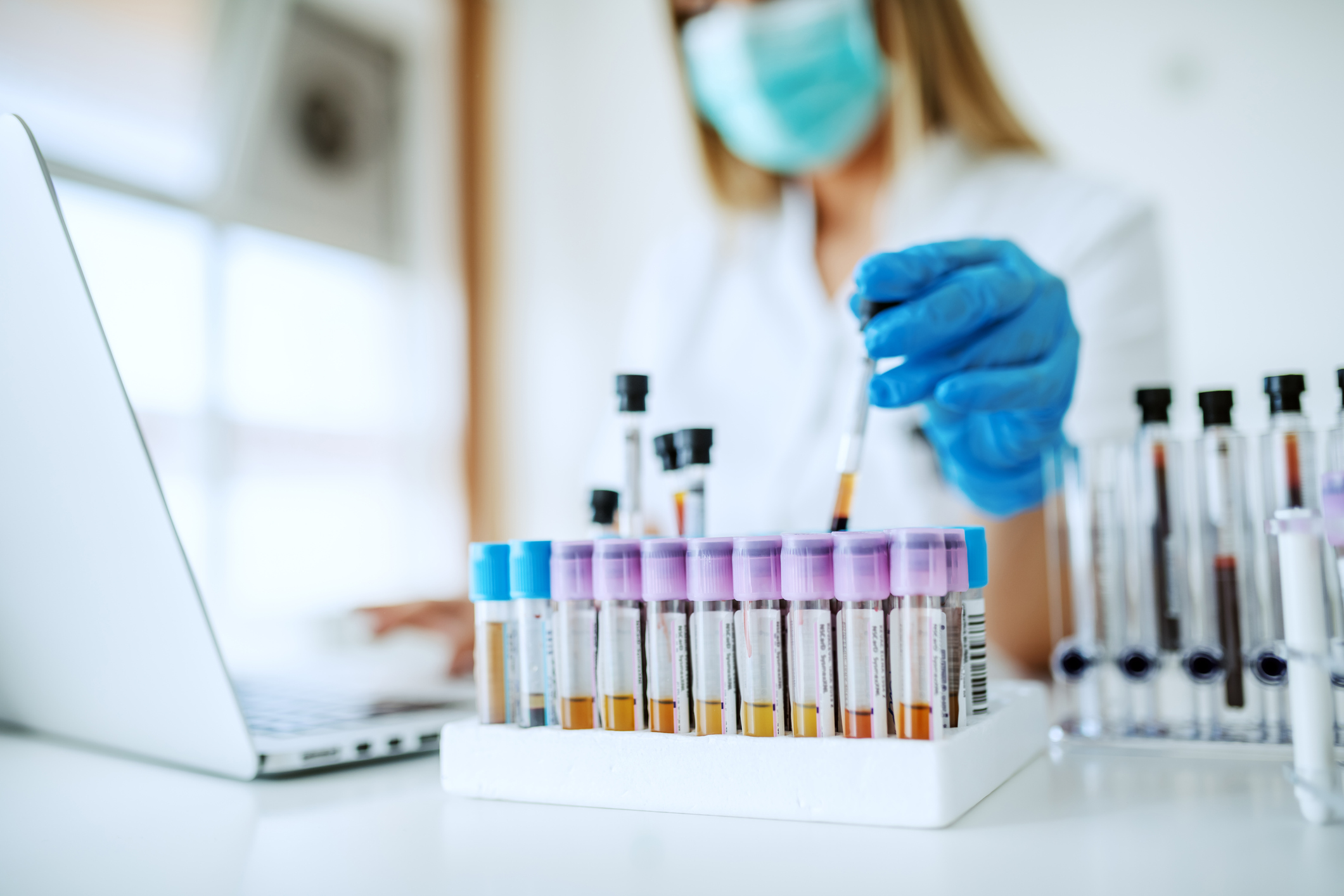Could Faecal Testing Help Personalise Cancer Treatment?
22 jun 2020

A new study suggests that measuring short-chain fatty acids in the gut may offer a way to predict which cancer patients will benefit from immunotherapy.
Cancer therapies that target elements of the immune system – immunotherapies – are showing remarkable results for many patients. So-called ‘immune checkpoint inhibitors’ work by interfering with the mechanism that cancer cells use to evade destruction by the body’s immune system. Examples include nivolumab and pembrolizumab, which target a molecule on the surface of cells called PD–1.
Treating patients with immune checkpoint inhibitors can shrink tumours and improve survival rates, even for whom other therapies have failed. However, the response to these drugs varies widely from person to person – particularly for those with solid tumours.
If clinicians could predict who will benefit from cancer immunotherapies in advance, this would help spare many patients from the risk of unnecessary side effects. Defining the factors that can influence this variability in response will also improve our understanding of how these treatments work, identifying new opportunities for widening their effectiveness in the future.
The Gut Microbiome is a Suspect
Several studies have suggested that the population of microorganisms in our gut may influence the success of cancer immunotherapies. But the mechanisms behind this potential association remain unclear. One suspect are the short-chain fatty acids, which are the major end–products of gut microbiome–mediated metabolism. These molecules are thought to have wide-ranging effects on the whole body – including in modulating the immune response.
In a new study, published in JAMA Network Open, scientists set out to explore whether short-chain fatty acids are associated with the clinical outcomes of patients with solid tumours treated with nivolumab or pembrolizumab.1
Evaluating Short-Chain Fatty Acid Concentrations
The researchers recruited 52 patients with solid tumours before they started treatment with nivolumab or pembrolizumab. They collected faecal and plasma samples and measured the concentrations of various short-chain fatty acids using ultra–high–performance liquid chromatography coupled with tandem mass spectrometry.
For these experiments, they used ultrapure water from an ELGA PURELAB® flex 5 water purification system, minimising the risk of introducing contaminants that may affect their results.
The scientists carried out scans to measure the size of the patients’ tumours at regular intervals over the study. They then carried out statistical analyses to evaluate if the levels of short-chain fatty acids were related to their response to treatment. They found that high concentrations of acetic acid, propionic acid, butyric acid and valeric acid in faecal samples – and isovaleric acid in plasma – were associated with patients living longer without their disease getting any worse.
A Non–Invasive Test
This is the first study to identify a link between short-chain fatty acids and the effectiveness of PD–1 treatment for solid cancers.
If these results are confirmed in larger studies, testing faecal samples from patients with solid tumours could offer a relatively simple way to predict who may benefit from nivolumab or pembrolizumab– paving the way to a more personalised approach to cancer immunotherapy in the future.
Why Choose ELGA LabWater?
ELGA’s expert engineers, chemists and scientists are at the forefront of technological innovation. We continue to introduce game-changing features to the laboratory water market.
Reference:
- Nomura M, et al. Association of Short–Chain Fatty Acids in the Gut Microbiome With Clinical Response to Treatment with Nivolumab or Pembrolizumab in Patients with Solid Cancer Tumors. JAMA Network Open 2020;3(4):e202895
Dr Alison Halliday
After completing an undergraduate degree in Biochemistry & Genetics at Sheffield University, Alison was awarded a PhD in Human Molecular Genetics at the University of Newcastle. She carried out five years as a Senior Postdoctoral Research Fellow at UCL, investigating the genes involved in childhood obesity syndrome. Moving into science communications, she spent ten years at Cancer Research UK engaging the public about the charity’s work. She now specialises in writing about research across the life sciences, medicine and health.
